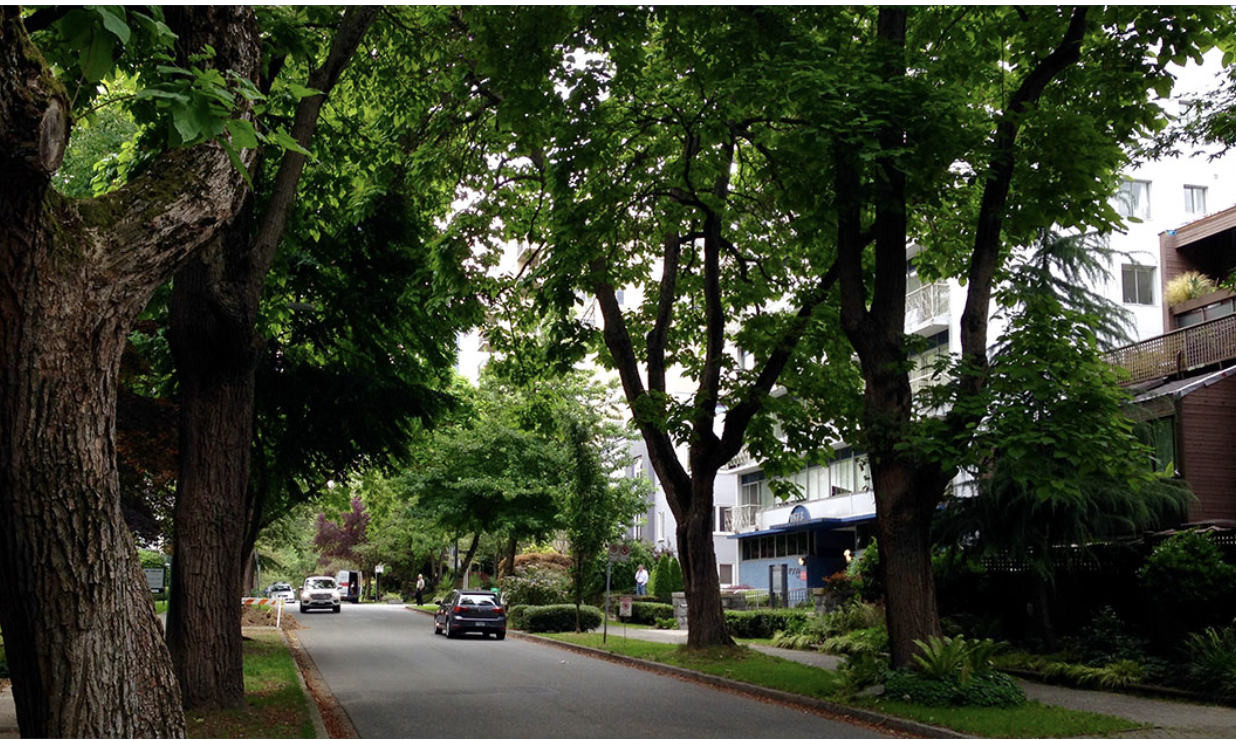
Sep 4, 2023: Middle Missing Housing Plan goes to public hearing, Sept. 14
With giant cranes cluttering the skyline and the constant clamor of construction, it’s hard to fathom Vancouver would find itself on a list of municipalities reprimanded for failing to meet housing supply expectations, at least by BC government standards. So it came as no surprise that the City’s Planning department was told to put a rush on the Missing Middle Housing Plan (MMHP). And rush it did: the plan goes to public hearing months ahead of schedule on Thursday, Sept. 14 at 1 pm. A final vote by Council will follow.
The MMHP is essentially a culmination of housing supply and affordability strategies that date back to 2017. In January 2020, then Mayor Kennedy Stewart presented his “Making Home: A Home for All of Us” plan that would have allowed up to six units on a single lot in all residential zones. Stewart failed to convince the majority of Councillors to adopt all the points of his plan — but the idea persisted. In September 2022, he brought it back to Council and it passed in a 10-2 vote.
Prior to the October 2022 election, mayoral candidate Ken Sim ran on a platform that supported many housing strategies to increase density through new building, including the Broadway and Vancouver Plans. The majority of the current Council supports the MMHP and is widely expected to approve the plan. But many questions remain: Can the plan deliver the “right supply” of housing, meaning more affordable rates for middle-income residents and families looking to buy their first home? And what “side effects” will emerge?
What the MMHP will allow:
- Up to three to six units on most RS lots (up to four units on a standard lot, five units on mid-size lots, and six units on large lots or eight units for secured rental housing).
- Maximum height of three storeys and 11.5 m (37.7 ft.). Maximum Floor Space Ratio (FSR) is 1.0 FSR. Vehicle parking is not required but can be provided at the rear of the property.
According to the City the cost of one new unit on Vancouver’s Eastside is estimated to be $1.1 million, far less than the average price of a $2-3 million detached home. UKRA supports the idea of adding more supply to our neighbourhoods, but the lack of details the MMHP provides and the absence of upper limits to new construction per block are troubling. At this point, we don’t have a clear idea of how many multiplexes will be built. But consider what’s at stake should the plan go forward as written.
Loss of the Urban Forest:
With the extreme weather-related events this summer, climate change is forcing all of us to rethink how we can make communities more resilient.
The Planning department says the MMHP meets several criteria of its Climate Emergency Action Plan, but new multiplexes and individual strata units require clear-cutting of existing lots, leaving no back or front lawns; gardens and trees will also be removed. The MMHP report states that “It is important to note that larger building footprints and increased hard surfacing will result in more trees being removed on individual lots. Similarly, city street trees will frequently need to be removed to provide new utility connections.”
No matter where one lives in Vancouver, neighbourhoods without greens spaces, trees on boulevards and private lots, would be an enormous loss. Trees provide shade, noise baffling, wildlife habitats, and oxygen. They also hold earth in place on sloped ground and capture carbon. Backyards have long provided a safe place for children to play and for neighbours to meet. The City says local parks are great alternatives. But there are not enough parks for residents already. More importantly, residents will lose shade and cooling as temperatures continue to rise. This will almost certainly affect our mental health and well-being. The MMHP’s strategy to destroy trees would be a giant step backward.
But the planners tell us it’s easier to cut down everything rather than spend the time creating a plan to retain trees. “While buildings can sometimes be designed around trees, that approach requires a customized design, relaxations and longer processing times,” the MMHP report states. “Given the significant challenges of designing around trees, staff anticipate that tree retention will not be possible for many multiplex projects unless trees are located within the front yard setback.” Frankly, we find it hard to believe that people entrusted to create a more liveable city would do this. Unless our planners and politicians revisit this policy now, the loss of our green canopy will be permanent. Our neighbourhoods will be hotter, harder, and harsher.
We can and must do better than this
Lack of Public Input
Under the guidance of head planner Theresa O’Donnell, the planning department met with several Vancouver developers (whose names were not provided) for six sessions to help craft the MMHP. In stark contrast, citizens were not invited to voice their wishes or concerns apart from an open house and a Shape Your City survey. And, again, UKRA found the survey to contain leading questions and it failed to provide enough information to give intelligent responses.
During the final presentation to Council, senior planner Patrice Huber praised the results of the survey saying it showed “strong overall support” for the MMHP. What she didn’t say was that of the hundreds of thousands of potential participants, only 1,895 Vancouverites completed the survey. While many wave off the Shape Your City Surveys, saying they don’t take the results seriously, City staff routinely uses the results to justify public approval of its plans.
Relaxation of Design Guidelines
Very few to none of the planning department’s proposals make an attempt to design developments that would fit into existing streetscapes. Vancouver used to be called “a city of neighbourhoods,” each with its own distinct look and character. Is removing design guidelines for new, large multiplexes a mistake? The outcomes could be a hodge-podge of styles. We don’t know how large room sizes will be. Will there be a window in each room? What about noise impacts from residents living in the units? Planning should keep the guidelines in place at least in the early days to see what works and what does not.
Aging Sewer System
As single detached houses are redeveloped into multiplexes, the strain on Vancouver’s century-old sewer system, which is nearing capacity in many parts of the city, will be immense. Increasing the number of units and the area of impermeable surface on lots will put pressure on the sewer system as additional rainwater runoff volume and additional sewage discharge enters the system. Each new multiplex will require a rainwater detention tank installed at the front of the house.
MMHP Undermines Character House Retention. Under the plan, demolition is incentivized. As we have mentioned in earlier letters, this could lead to the demoviction of many tenants living in secondary suites. Were these residents consulted on the MMHP? “There is already a missing middle that exists in the city of Vancouver that needs to be acknowledged and engaged,” SFU professor Prof. Yan, who is a registered planner, said in Feb. 3, 2023 story in The Globe and Mail (See entire story here).
And there is no mention of exempting properties listed on the Heritage Register.
Street Parking
According to the MMHP report, the new multiplex option does not require any vehicle parking spaces on site. For those owners who choose to, one or two parking spaces can be included at the back of the property, but, as we move to electric vehicles, those will require expensive PMT hookups. “Multiplexes may provide some on-site parking (usually one space), but they will also rely on street space for vehicle parking, which will increase demand for street parking, “says the report. Staff say they don’t expect there to be negative impacts to street parking at first, but as more multiplexes are built, neighbourhoods will have to consider residential permit parking zones and fees to manage the street space.
Whether you agree or disagree with how the MMHP will affect our neighbourhood, we strongly encourage you to take advantage of the few opportunities the City affords its citizens to be heard. This will be your last chance to share your thoughts about the MMHP because Council will make its final decision directly after the public hearing. After that, the plan cannot be altered.
Sign up to speak to Council. Speaker registration opens today, Friday, Sept. 1 at 8:30 am. Or, you may write in. Note that this link takes you to a general form that is summed up but not shared with Council members. To reach individual City Councillors, go here.
Main photo, top: “Tree-scaped” side street, City of Vancouver.



No Comments